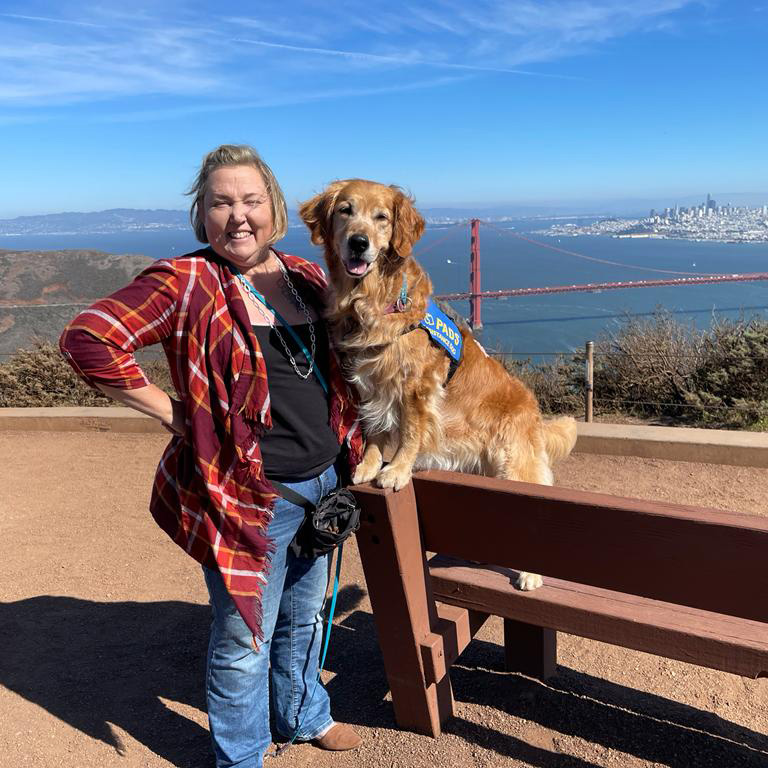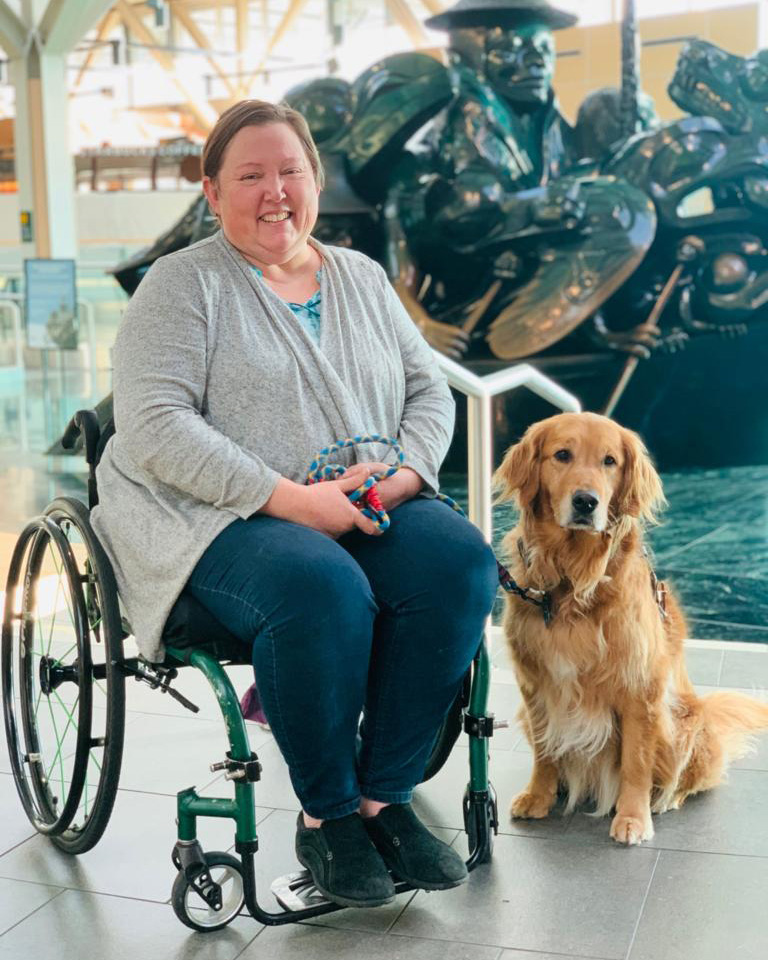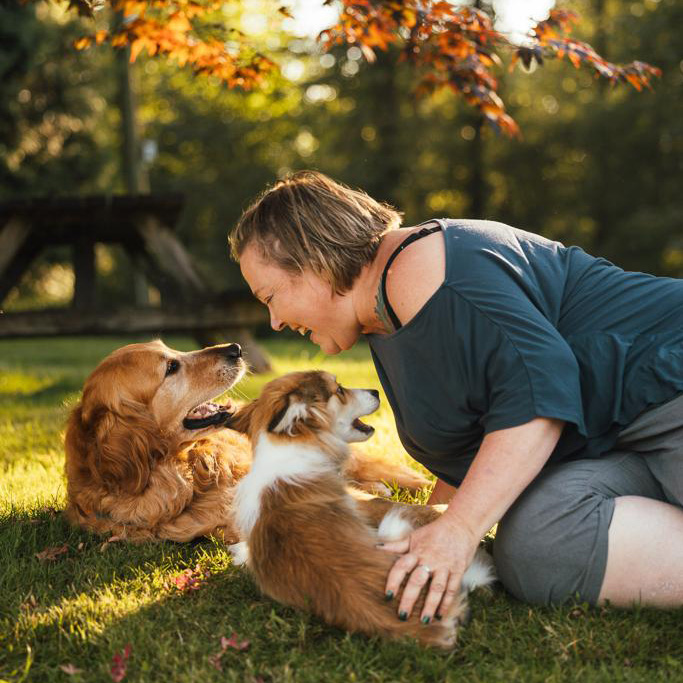Invisible Disabilities Week
Mid-October marks Invisible Disabilities Week – at PADS we have many clients that fall in this category.-Many people understand that some disabilities (like hearing loss or PTSD) are invisible. We also have Mobility Service Dog clients that fall in this category.
What is an invisible disability?
As the name implies, Invisible Disabilities are ones that are not necessarily obvious at first glance – they may be constant or variable.
Examples of:
- Constant invisible disabilities, which remain the same over long periods of time, are hearing loss or blindness.
- Variable invisible disabilities, which can vary from day to day/month to month in scope and severity of symptoms, include Multiple Sclerosis, Diabetes or Fibromyalgia.
We caught up with one that is close to home, our client (and PADS Communications Manager) Tara to share a few thoughts on some of the unique challenges of living with an (often) invisible disability and what it means to navigating the world with a Service Dog.
“My own mobility challenges can vary a lot – those that know me well realize there are days I’m installing air conditioners like the McGyver my dad raised me to be. Often people assume that disabled automatically means not strong. Being disabled does not mean I am not strong (or capable), for me it means sometimes I am not strong and my muscles don’t follow instructions as they should.
On those days, you might find me in my wheelchair or using Cadey’s bracing harness for each step, because either my balance is so off it’s not safe to move around ambulatory or I’m in a period where the exertion needed for simple activities like standing and walking can trigger a flare up that leaves me unable to move without pain for days on end.
Living with an often invisible disability has led to facing heart wrenching ableism — I’ve:
- been heckled by strangers in the parking lot for being a “faker” as I’ve loaded my wheelchair back into my car after a shopping trip,
- been told “But you look fine” followed by a request to explain my disability and medical condition in order to gain public access
- had well-meaning strangers ask incredibly invasive personal questions about “why do you need a dog?”
A fellow PADS client (also with an invisible disability) this week quoted something I’ve seen before: “I’m not faking being sick, I’m just really good at faking being well!”
Many – even those closest to me – also struggle to understand, because their lived experience tells them that sickness can be resolved with treatment and fatigue can be resolved with rest. It’s important to know that not all disabilities and illnesses can be fixed with a treatment, rest or exercise.”
#TimetoBelieve
The theme of this year’s Invisible Disability Week is “Time to Believe”.
Tara added:
“Being seen, heard and believed is an important part of any human’s existence – but particularly so for those with invisible disabilities. I love the theme “Time to Believe” – because for me it’s not just believe me when I say ‘I am not well’ or ‘I need help’, but also believe me when I say ‘I am good’ or ‘I can’.
If you see me hefting dog food, enjoying a hike or busting a move on the dance floor – know in a weird way it’s a gift (or less often) a sacrifice. I seize these rare moments to reclaim some of the freedom I’ve lost. I also sometimes make choices I’ll “pay” for later, but the trade off is worth it. I danced at the ADI conference last month – I felt that choice for days (but SO worth it). I spent a day at the beach with Cadey and my dear friends in California (and crashed hard as a result) but also worth it!
And, if you see me in my chair, I’m not “more sick” than any other day, I am just making a choice to use a tool that helps me live life to the fullest.



Help us raise more Assistance Dogs like Cadence
Tips for RESPECTFUL interactiONs
Do’s
💚 Welcome us into your business, we have legal rights of access, but being welcomed like anyone else (read: without an inquisition) is a wonderful courtesy.
💚 If you must interact – a “what a beautiful/smart/lovely service dog” as we all carry along our way is always welcome.
💚 If we look like we need assistance, please ask and then respect the answer.
Don’ts
❤️ Distract the dog from their work – a well-meaning “Hello pretty girl” or outstretched hand to Cadence can be incredibly dangerous and lead to me losing balance.
❤️ Ask questions about a stranger’s medical condition or disability. Ever. It’s not only rude, in many parts of the world it’s against the law.
